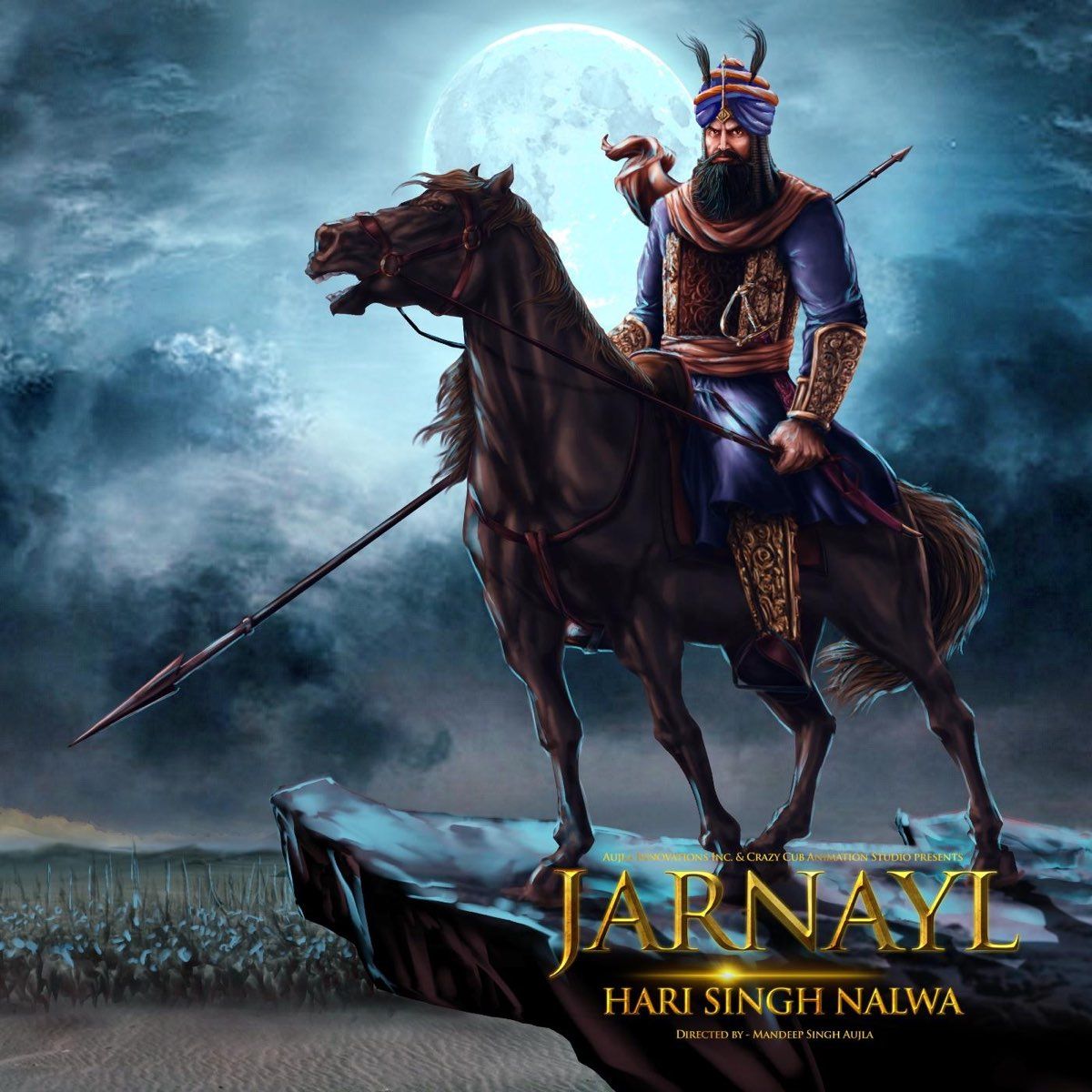Hari Singh was born in 1791 in an Uppal family in Gujranwala (now in Pakistan). Hari Singh Nalwa was Commander-in-chief of the Sikh Khalsa Fauj, the army of the Sikh Empire. He was very tall. He was not very heavy in body and not thin in appearance, but very shapely and agile. The headline is different, very glorious and bright. The effect of his radiant face on the viewer was such that it was in no way less than the effect of magic.
There was such a charm in the eyes that sometimes the great warriors would lose heart as soon as they saw the radiance of their eyes. He was the only sniper of his time to aim a gun. But his favorite weapon was the sharp sword, which he used to wield very fast and did not get tired for hours. He was very fond of horses. These qualities were probably acquired by him from his beloved Maharaja Sahib. He rode the horse so fiercely that those who saw his marvel were amazed.
He had such endurance that he could stay on horseback for two consecutive days in case of need. By the time Sardar Hari Singh began his life, he had neither the support of his father nor any other means to recommend him. If there was support then only Akal Purakh and one’s own courage. It was with this resource that he came to the fore and started his career from the lowest to the highest ranks of the most successful world-famous Sipahsalar (Commander-in-Chief) and sovereign Governor.
At the time of completing his world tour, his income including Jagir and Talab was Rs. 852000 per annum, i.e. Rs. 71000 per month. This creates more respect for you in our hearts when we see that even after reaching such a high level, he did not become rich in a delicate mood and well-being. As you progressed, your temperament became more diligent and supportive. Sometimes he would sit in one place with his soldiers and fight in the field all day long. Due to his good nature, his soldiers used to sacrifice their lives for him. He had never done anything half-heartedly. it.
In spite of such increased bravery and success, we see a special feature in your nature that before starting the war, he always took care that if the war could be averted in any way, he would do his best to avert it first. Let’s try. Because he was always trying to avoid human bloodshed, he did not feel inferior in it and then sent his envoys to persuade the other side to live in peace. But when they did not believe in any circumstance, then they came on the field like a roaring lion with their boundless zeal and full force.
Many ignorant people thought that Sardar Hari Singh was an enemy of Muslims. If we examine this from a historical point of view, then this idea proves to be completely baseless. They were the enemies of the arrogant and cruel people regardless of their faith. He valued those who considered Muslims to be worthy.
Many writers vent their frustrations by calling Sardar Hari Singh a staunch ruler. But if we look at your general attitude, this accusation also proves to be baseless. We have mentioned above that before the battle he was always trying to avoid the battle as much as possible, but when the enemies started the battle he would fight with full determination.
Sardar Hari Singh Ji’s manner of speaking was very charming and captivating. He, like the great scholars, used to utter very timely and timely words. Anyone who had time to talk to you, your ability and knowledge of the coin became imprinted on his heart. That time was not so much for newspapers and ordinary books as it is now. At that time only one half out of millions was known to the whole of India. Very few people knew about the situation in Europe and other foreign countries.
But his acquaintance with Europe was so profound that Baron Hughes writes that he was astonished to hear of his recent acquaintance with Europe. When he went to Shimla in 1831 to meet Lord William Bentick, the responsible officer and the Governor-General with whom he spoke were all acquainted with his wisdom and knowledge of the East India Company’s policy. The hallucinations were dazzling to hear from his mouth.
Similarly, Mason writes that the tone of his speech was similar to that of Shere Punjab Maharaja Ranjit Singh. He could read and write fluently in Persian, Gurmukhi and Pashto. Hooghle writes that there were very few literate men at that time, but Sardar Hari Singh could speak and write fluently in Persian. Similarly, Pandit Shiv Narain writes that Sardar Hari Singh Nalua was the most valiant and learned general in the court of Maharaja Sahib.
This unique general died on 30 April 1837 in Jamrud, Pakistan. But his good deeds will always have an impact on the hearts of his well wishers.
Biography of Hari Singh Nalwa 🙏









Comments & Discussion
8 COMMENTS
Please login to read members' comments and participate in the discussion.